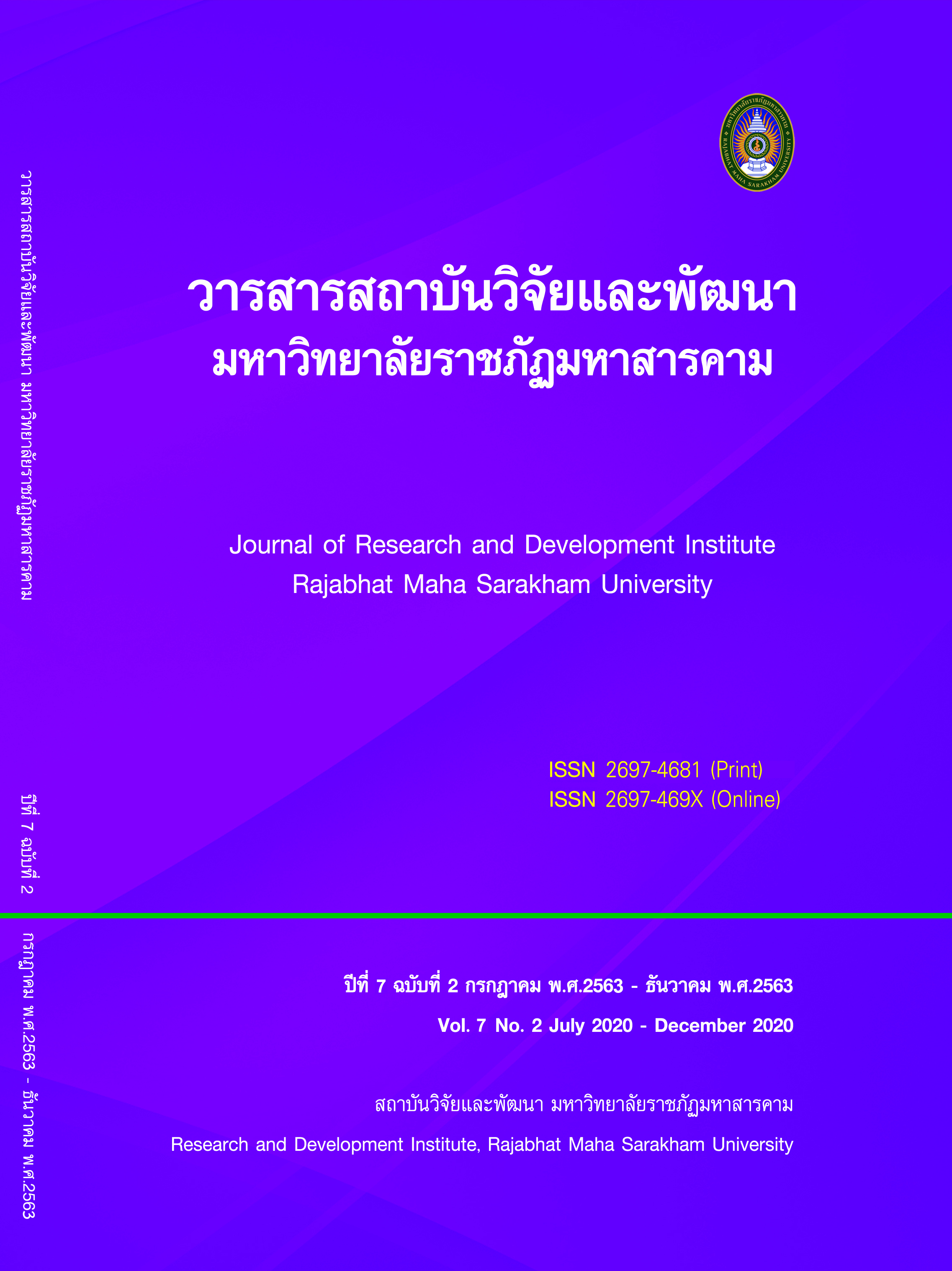The development and accomplishment of education and ability in solving statistical mathematic problems by KWDL of matthayom 1th students
Keywords:
accomplishment of education, KWDL, content.Abstract
The purpose of this research is to improve the efficiency of learning technique called KWDL of statistics for Grade 9 students by following the criterion 80/80 and compare the mathematical achievement align with observing the satisfaction of studying with KWDL technique.
In addition, Grade 12 students are observed in solving statistical problems by applying KWDL technique. The data is collected from 35 students Grade 9 room 8.The research methodology is the lesson plan of statistics, the achievement test, the mathematical solving test and the satisfaction of studying test. The percentage, mean, standard deviation and t-test are applied as the data analysis tools.
The research results are here is that the KWDL technique in statistics lesson for Grade 9 students is effective with score 84.07/80.93 (E1/E2) above the criterion, Grade 9 students who follow KWDL technique tend to have better score with significant 0.05, and also perfectly satisfy in learning with KWDL technique.
References
References
Chayanisa Pengjan, Noppon Tanachaikhan and Sudapron Panyapreuk. (2017). THE LEARNING MANAGEMENT BY USING KWLD TECHNIQUE TO DEVELOP LEARNING ACHIEVEMENT IN MATHEMATICS ENTITLE “SENTENCE PROBLEMS” OF PRATHOMSUKSA 6 STUDENTS. Journal of Graduate Research, 8 (1), 71-82.
Jirapa Nuchthongmuang. (2015). THE DEVELOPMENT OF MATHEMATIC ACHIEVEMENT ON AREAS USING GEOBOARD AND INQUIRY CYCLE (5E) FOR PRATHOMSUKSA 4 OF SAWANGWITTAYA SCHOOL. Master of Education Thesis: Silpakorn University.
Jutawat Sriphanlum (2015). A Study of Learning Achievement in Mathematics on the Topic of Addition and Subtraction for 3 Grade by Using KWDL Learning Technique and Normal Learning. Master's Degree Thesis (Curriculum and Instruction): Maha Sarakham Rajabhat University.
Maslow, A. (1970). Motivation and Personality. 2nd ed. New York: Harpers and Row.
Ministry of Education. (2008). Basic Education Core Curriculum 2008.
Bangkok: Ministry of Education
Ministry of Education. (2009). Basic core courses. Bangkok: Ministry of Education.
National Institute of Educational Testing (Public Organization). (2018). Report of the results of the National Basic Educational Test (O-NET) Academic Year 2018. [Online] http://www.onetresult.niets.or.th/AnnouncementWeb/Login.aspx [1 August 2019].
Nuttawut Buttawong. (2017). Development of teaching and learning activities in mathematics by collaborative learning activities using TAI techniques, basic statistics and probability, Prathomsuksa 6, Pongploy Anusorn School. Bangkok (Huamark).
Pongnapha Jaitha (2015). Development of mathematics learning achievement of grade 4 students using KWDL technique. Master of Education Thesis (Curriculum and Instruction): Maha Sarakham Rajabhat University.
Puangpet Kwoaplod. (2013). Development of mathematics learning achievement on the application of single variable linear equations by using a set of problem-solving activities based on the concept of Polya of Mathayom Suksa 2 students, Muang Nakhon Si Thammarat School. Mahasarakham: Mahasarakham University.
Shaw Chambless and Chessin Price. (1997). “Cooperative Problem Solving: Using K-W-D-L as an Organizational Technique”. Teaching Children Mathematics, 3(9), 482-486.
Tisana Khammani. (2012). Pedagogical Sciences: Knowledge for effective organization of learning processes. Bangkok: Chulalongkorn University.
Watchara Laowreandee. (2011). Models and strategies of learning management for the development of thinking. 7th edition. Nakhon Pathom: Silpakorn University.
Downloads
Published
How to Cite
Issue
Section
License
Articles that are published are copyrighted by the authors of the articles







